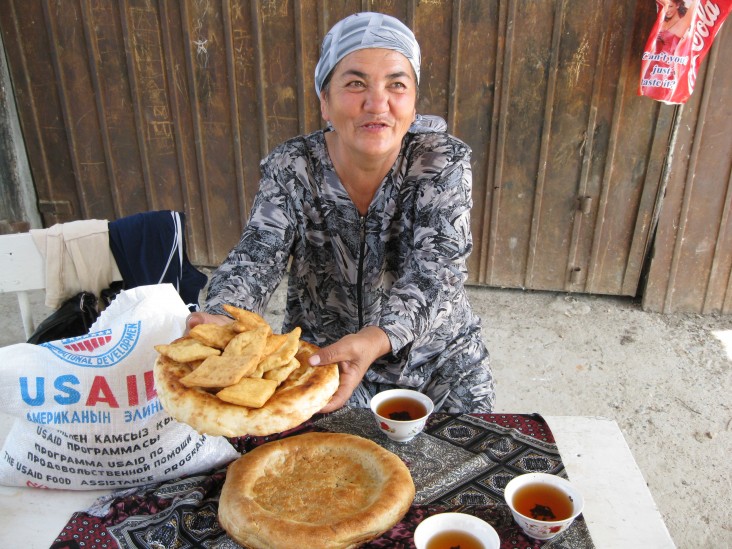Speeches Shim

Kyrgyzstan has experienced violent conflict on a number of occasions in its two decades of independence. Driven by a variety of factors, including a struggle for limited resources between diverse communities and weak adherence to the rule of law and corruption, Kyrgyzstan still has a number of flashpoints that could result in renewed conflict.
USAID programs address some of the key drivers of conflict by supporting early warning analysis systems and promoting mediation. USAID also assists with re-building relations between conflict affected communities to mitigate further potential frictions. This includes work with youth in affected communities to help prevent further violence and build opportunities for peace.
- Since 2006, IFRP program has donated more than 19 million individual servings, including one million rations to earthquake-affected families in the south of the Kyrgyz Republic in 2008. In 2013 alone, IFRP program provided nutritional assistance to 79 social and health institutions in 2013 in the Kyrgyz Republic.
- All 160 Peace Bank members have been trained in need assessment, development and implementation of community-based projects.
- Over 400 local residents have also received basic knowledge and skills in mediation and conflict prevention.
- Peace Banks have received 413 project applications from their local communities.
- Over 130 projects have been funded in amounts ranging from $500-$9,000. More than 600 women have been directly involved in implementing these projects.
- In April 2010, USAID responded to an outbreak of violence in the Osh and Jalalabad provinces by providing emergency medical supplies to hospitals overwhelmed with patients. USAID assistance reached 532,400 people, mostly internally displaced persons, by providing access to psychological counseling, primary care, and inpatient services, as well as food assistance.
- In June 2010, USAID established 33 child-friendly spaces to support nearly 5,100 children affected by the conflict and established 33 women’s groups that provided skills training, recreational activities, and psychosocial support, benefiting nearly 2,000 women.
- USAID also trained 2,200 health care workers to respond to acute respiratory infections and pneumonia in children and prevent the development of micronutrient deficiency among women and children. In addition, health care supplies and conflict resolution training were provided for medical staff to enhance their health service capacity in multi-ethnic communities.
- In 2010, USAID provided 547 equity grants to micro-entrepreneurs in Osh and Jalalabad cities to rebuild their businesses, replace lost or destroyed property, and purchase equipment and tools. Approximately 300 women entrepreneurs received grants, representing more than 55 percent of the total grant recipients. More than 4,100 entrepreneurs and their direct dependents have benefitted through improved access to livelihood opportunities as a result of equity grants.
USAID programs in the area of crisis response and conflict prevention:
- Women Peace Banks (June 2012 - December 2014)
- Transition Initiatives (OTI) (April 2010 - December 2013)
-
International Food Relief Partnership (IFRP) Program (2006 - 2013)
-
Conflict Mitigation through Targeted Analysis and Community Action in the Kyrgyz Republic (COMTACA) (January 2012 – January 2014)


Comment
Make a general inquiry or suggest an improvement.